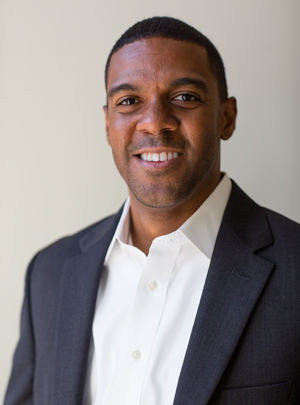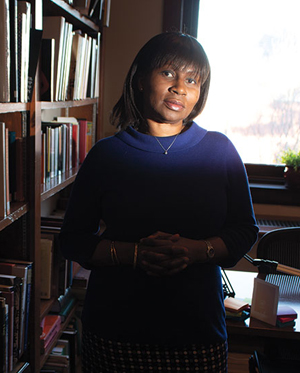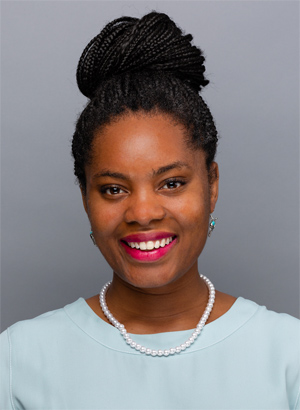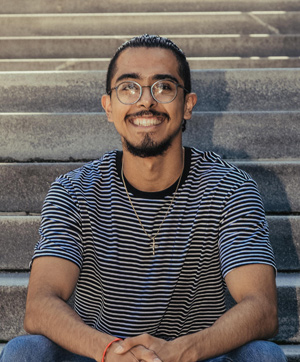Reflecting on his arrival at Amherst in 2016, Norm Jones, chief equity and inclusion officer, says, “It was very clear to me at that time that Amherst believed that enrollment was our focus. But it’s not enough to increase access for Black and brown students. We have to focus on their experience after the moment of enrollment.” The Mellon Mays Undergraduate Fellowship (MMUF), a national grant pursued by Jones and secured by the College in January 2018, is one way to do that. “A place like Amherst, with the demography we have and the talent we have, should be participating in all of these programs that involve students of color being positioned for success as scholars.”
The MMUF’s mission is to address the problem of underrepresentation in college and university faculty by funding and mentoring selected undergraduates’ research on their way to careers in academia. Says Jones, “It is not a foregone conclusion in the mind of the academy that Black and brown students will pursue Ph.D.s and diversify the professorate. It can’t be left to chance. So we have to hardwire the system by making sure they begin their course of action as undergraduates.”
MMUF alums then, ideally, go on to diversify institutions of higher education—not only by their presence but also by contributing to scholarship in which underrepresented voices have been historically silenced. As MMUF scholar Djelimory Diabate ’21 puts it, “The question for me is: What is this knowledge for? What is the point of academia? That’s something that drives the purpose of getting an education and pursuing higher education.”
If it sounds aspirational, it’s not. Or not only. Because MMUF is less a self-congratulatory celebration of diversity than a material proposition of equity. And it’s not just about what the students might do—it’s about what they’re doing now: how they’re thinking and thriving and changing Amherst in the process.
“Over half of our student body is students of color,” says Jones. But there are dynamics in the culture, nonetheless, that can obligate some students—especially students who hold marginalized identities—to lead “double and triple lives”: “You can be one way in the classroom, then outside you can be more authentic, and at home, you can be fully authentic,” Jones explains. “That requires a lot of psychological, emotional and physiological labor that ultimately chips away at your experience. But when you have a Rosemary in your life, you know there’s a space where you can bring all of that.”
He’s talking about Rosemary Effiom, who is the MMUF program director at Amherst, as well as the first and main support person for the Amherst MMUF scholars. Three years into the program—three cohorts and 15 students altogether—Effiom is thrilled with the successes. The first graduating cohort are heading to grad school, and the current seniors are all applying to national fellowships and Ph.D. programs.
Chimaway Lopez ’20, who has started a Ph.D. program in Native American studies at the University of California, Davis, identifies MMUF as a major factor in his decision to continue his education. “Beyond all the practical things, there’s the encouragement. Someone telling you: you will do good in graduate school. The whole network of people who are all supporting each other.”
This is the “amazing team” Effiom describes: “Faculty mentors, faculty advisory board members, subject librarians and Writing Center staff who partner with us.” Diabate, a Black studies and Asian languages and civilizations major, identifies support and opportunity as key elements of his MMUF experience. “I had a chance to access classic Arabic texts. I wouldn’t have even been aware that I could do that as an undergraduate. I worked with Missy Roser [’94], who got me texts from all over the world.” (Shoutout to undergrads shouting out research librarians!)
Effiom uses the words energizing and exciting to talk about the newest cohort. “They’re interrogating and advancing research in so many fields. It’s beautiful to see. And working with Jallicia was incredibly amazing. She is beyond generous. She’s instinctively brilliant.”
Mellon is another way to multiply opportunities for intervention. Let’s change how we recognize talent, and what it means to be a professor, and who can.” —Jallicia Jolly
That’s Jallicia Jolly, a postdoctoral fellow and visiting assistant professor in American studies and Black studies. Jolly led the students through the six-week summer research training program, which introduces each new cohort of fellows to advanced research protocols in their respective fields. “I had a wonderful, thoughtful and brilliant group,” she says of the latest cohort, “who were already starting to think about pushing the boundaries of how we do and think about scholarship and intellectual production.”
Jolly is herself an MMUF alum; she graduated from Williams College before pursuing her Ph.D. in American studies at the University of Michigan, which she completed this past spring. For Jolly, what was transformative about MMUF was a combination of mentorship, support and demystification. (“I am not exactly sure what you do!” Jolly said to the first Williams professor who asked if she was interested in pursuing academia.) “Diversity isn’t enough,” she says. “We need to talk about equity and inclusion. And Mellon really removes barriers and connects the students to support structures and mechanisms to develop multiple pathways for their learning and advancement.”
Then there’s the money. For Jolly, who is, like many MMUF scholars, a first-generation college student from a low-income background, “the MMUF provided a stipend to live, eat, pay bills. It provided the time and space to do research in a way that I wouldn’t have had access to if I hadn’t had that kind of funding. You can’t fully have a meaningful conversation about faculty diversity—or, I should say, the lack thereof—without making the necessary investments in equity-oriented initiatives like MMUF.”
Manuel Rodriguez ’21, a Latinx and Latin American studies major, echoes this: “The economic impact—the stipend—it really helped me reduce the amount of jobs I was doing. It gave me more time to work on my research and approach it with a clear mind.”
Plus, all the students identify their cohorts as lifelong friends. Rodriguez describes the way the program connects students through scholarship: “We’re like, One day, we’re going to be citing ourselves.” And he laughs, but he’s not kidding.
MMUF is not a gift tied up in a bow, handed to Black and brown students who might want to earn doctorates. It’s not a cup that was empty and is now filled. It’s a worldview. It’s the tip of the iceberg, and the iceberg turns out to be the academy itself. “There’s this general discourse—not only in the academy—that we can’t identify Black talent,” Jolly explains. “In the academy, the version of that statement is literally that statement. Or it’s We can’t identify Black faculty that do x studies. Mellon is another way to multiply opportunities for intervention. Let’s change how we recognize talent, and what it means to be a professor, and who can.”
For Jones, given that access is no longer the main question for Amherst, he’s pivoting to the next one: Now that you’re in, what will you do, and what will we offer you? “Well, we already know what they’re going to do,” he says: “They’re going to shine. So it’s really more about what we offer. MMUF is just one example of the way we position this special cohort for success, with great intentionality.”
“MMUF is more than a program,” he adds. “It’s a prototype for the College.”



